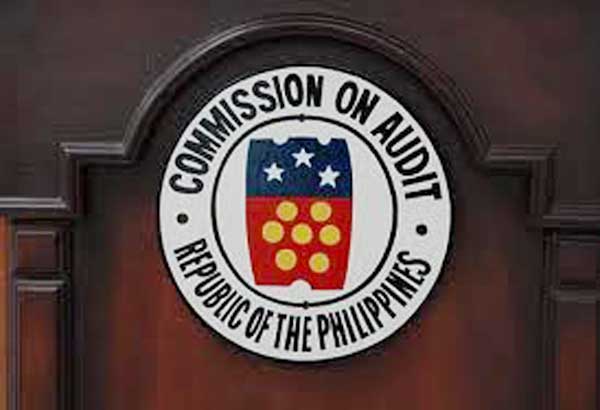MANILA, Philippines - The Commission on Audit (COA) is calling for an investigation on the 2011 to 2014 transactions of the Office of the Vice President (OVP), covering the P94.717-million purchase of relief goods for calamity victims from an unnamed supplier found operating without a business permit.
State auditors said a probe should be conducted so those responsible can be held liable for entering into a negotiated contract for the supply and delivery of goods.
But the United Nationalist Alliance (UNA) simply shrugged off yesterday the COA report with party secretary general JV Bautista dismissing it as part of the intensified demolition campaign against their standard-bearer Vice President Jejomar Binay.
He also called on COA chairman Michael Aguinaldo to go on leave.
In its 2014 report released yesterday, COA said “Local governments exercise some regulatory powers over business and other private activities to preserve and promote the health, safety and welfare of the community. A permit or a license refers to a permission granted by competent authority to exercise a certain privilege that, without such authorization, would constitute an illegal act.”
“(The) OVP, being a government entity, is obliged to impose compliance to all existing laws, rules and regulations, one of which is the compliance with the required appropriate business/mayor’s permit or license before starting the business. OVP has all the rights and privileges to reject the documents or, if not sufficient, require additional documents to prove the legality of engaging in business. However, OVP remised in its obligation,” state auditors said.
It appeared in the COA report that whenever calamities occur, the OVP tapped the services of the supplier by entering into a negotiated contract for the supply and delivery of various essential goods such as noodles, sardines and biscuits.
However, a verification of the business or mayor’s permit of one of the top suppliers showed that the permit pertains only to non-essential goods instead of the food and other products usually given to calamity victims.
The COA report also said that the supplier’s of barangay clearance indicated that its line of business is trading of office supplies, which are considered to be non-essential goods.
State auditors noted that during the ocular inspection of the supplier’s business address, the only commodities on display and for sale were office supplies consistent with the permit issued by the Makati City government.
“However, the supplier’s transactions with the OVP were contrary to the business permit when the delivered goods were essential commodities,” the audit team said, noting that the supplier started transacting business with OVP in 2011.
Records show that the supplier’s transaction with the OVP amounted to P26.5 million in 2014, P19.732 million in 2013, P28.524 million in 2012, and P19.960 million in 2011.
The COA report said the transactions made without the required business permit to engage in the supply and delivery of essential goods was contrary to Section 4A Article A Chapter IV of the Revised Makati Revenue Code, which was enacted on Oct. 27, 2005.
The OVP, in defense, admitted that it overlooked the details on the requisite Business Permit where the authority was for non-essential items only.
“Further, Management reasoned out that despite the non-compliance with the requisite Business Permit, the supplier met all the purchase orders placed by OVP,” the COA report quoted the OVP as saying.
Despite such explanation, state auditors said “the premise relied upon by the OVP is contrary to public policy where non-compliance to any regulations issued by any competent authority, in this case the local government of Makati, would constitute an illegal act.” – With Helen Flores


